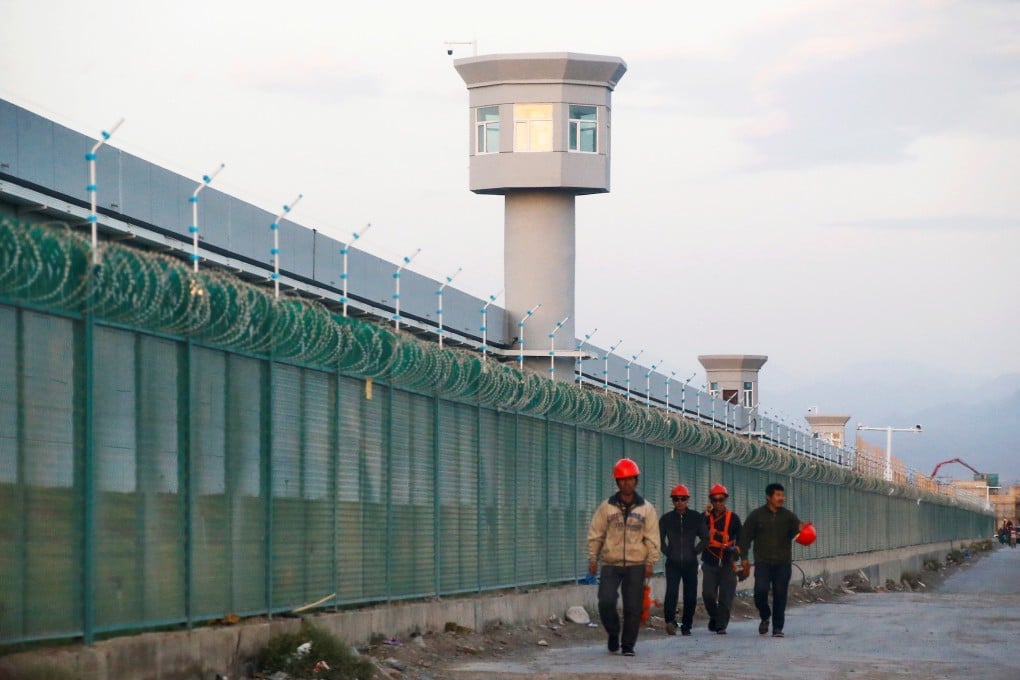China’s big data policing platform ‘arbitrarily’ targets Uygurs in Xinjiang based on age, family relations, HRW says
- A Human Rights Watch report says China’s police surveillance platform flagged Uygurs for legal, everyday activities like travel and personal relationships
- Predictive policing technologies are widely criticised, and HRW’s Maya Wang calls it a ‘pseudoscientific fig leaf’ for repression

Members of China’s Uygur minority are being targeted by a predictive policing system for a number of different legal activities and characteristics, according to a new report from the NGO Human Rights Watch (HRW).
The report is based on a list of more than 2,000 Uygur detainees in Aksu prefecture held between 2016 and 2018, according to HRW, which credits an anonymous source. About 10 per cent of the names were listed as being detained for “terrorism” and “extremism”, but most people were put on the list for lawful, non-violent actions, the report said.
Other offences include studying the Koran without state permission, having more children than allowed by state policy and using software like virtual private networks (VPNs) and Skype. In one case, losing an ID subsequently used by someone else was a cause for detention, according to the report.
“‘Predictive policing’ platforms are really just a pseudoscientific fig leaf for the Chinese government to justify vast repression of Turkic Muslims,” Maya Wang, HRW’s senior China researcher, said in the report.
Repeated calls to China Electronics Technology Group Corporation (CETC), which HRW identified as the platform’s developer, and the Public Security Department of the Xinjiang Uygur autonomous region went unanswered. CETC did not respond to an emailed inquiry about the new report.